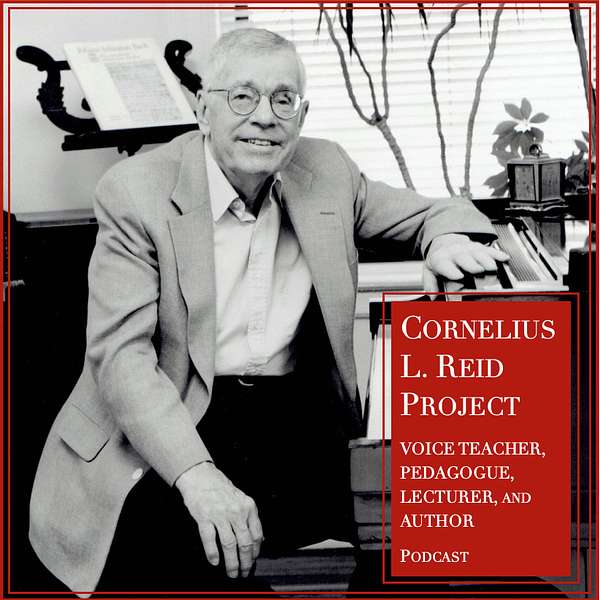
Cornelius L. Reid Project
Cornelius L. Reid, voice teacher, pedagogue, lecturer, and author, is well known in the voice community, having authored five books on vocal pedagogy and many published articles. A Festschrift was published in honor of his 90th birthday. Many of his pupils have been singers and teachers in major national and international venues. Despite these noteworthy achievements, his methodology is not well known. Words can describe sounds only in a general way. It is impossible to write a ‘how to” book on the teaching of singing because voice teaching requires the ability to listen functionally- that is, to associate vocal sound with specific muscular activity. The ear needs to be trained to distinguish subtle differences in vocal quality and associate that quality with the probable balance of tension distributed among the muscles involved in phonation.According to Reid, the voice can be developed in response to specially arranged patterns of pitch, intensity, and vowel. When the voice is given proper growth stimulation in the form of selected vocal exercises, muscles are reconditioned to react in a natural way thus allowing the voice to respond to its own growth needs.This series of recordings will provide a useful tool for voice teachers who wish to gain insight into the process of functional voice training based upon Reid’s teaching principles. It contains selected examples taken from hundreds of hours of recorded lessons and classes housed in the Cornelius L. Reid Archive, located in the Moffett Library of Midwestern State University, Wichita Falls, Texas. The recordings document gradual vocal development over extended periods of time as well as astonishing progress in as little as five days. There are excerpts from lessons demonstrating the use of exercises, the coaching of songs and arias, and Reid’s own comments on how the principles he sets forth are put into practice.Different recording equipment and ambiences, random volume control, relative distance of the microphone from the subject and teacher, and atmospheric noise, among other distractions, all contribute to an unevenness of recording volume and quality. However, one can forgive these distractions because of the valuable benefits to be realized from the information contained on the recordings. Reid’s own musical insights infused with his thorough understanding of the principles of vocal mechanics provide fertile ground for improved vocal performance. These recordings should be of value to anyone wishing gain insight into how the voice can be transformed. Dr. Don Maxwell, Project Director / Joseph Reed, Recording Engineer
Podcasting since 2020 • 52 episodes
Cornelius L. Reid Project
Latest Episodes
Singer I - Lesson Excerpt (6/16/07)
Comment: One can notice a marked improvement in this singer's voice in a relatively short period of time. The high notes are easier and the low notes not as heavy. Quote: Self-Regulation: the inherent ability of an organis...
•
Season 5
•
Episode 2
•
22:06

Singer I - Lesson Excerpt (4/20/07)
Comment: The important thing to take away from this lesson is that there are no so-called front and back vowels in singing. All vowels are formed in the back. The use of the "oo" vowel here is interesting. Quote: Vowels ar...
•
Season 5
•
Episode 1
•
8:47

Singer I - Lesson Excerpt (4/20/07)
Comment: In this lesson, one can hear a lighter, more tenor-like quality to the voice. Up to this point, this singer had sung exclusively as a baritone.Quote: Everyone has heard of tenors who have become baritones, bariton...
•
Season 4
•
Episode 11
•
4:39

Singer I - Lesson Excerpt (4/17/07)
Comment: This lessons explains the real meaning of "appoggiare la voce" or the ability to "lean" on the voice. It has nothing to do with breath support as is the popular point of view. There is also a discussion of an "open" vs. a "cover...
•
Season 4
•
Episode 10
•
23:15

Singer I - Lesson Excerpt (4/16/07)
Comment: The progression of this lesson is a great example of the usefulness of the falsetto in taming the chest voice. Listen to the WHOLE lesson to really understand what it means to listen functionally. Take note of the discussion abo...
•
Season 4
•
Episode 9
•
22:05
